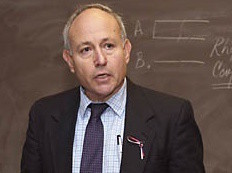With thoughts of Seward, special benediction for President Trump
On the last day of his visit to Jerusalem in 1871, William Seward, secretary of state under President Abraham Lincoln, attended Sabbath evening prayers at the Hurva Synagogue.
At the end of the service, the rabbi offered a special prayer of gratitude for Seward’s visit to the Jewish community of Jerusalem. It was an expression of appreciation to a world leader who acknowledged that Jerusalem is the eternal city of the Jews, one toward which they face in prayer and one to which they pray to return.
It would be most fitting for synagogues throughout the world to offer such a benediction for President Donald Trump and Ambassador to the United Nations Nikki Haley.
In the Reform synagogues of America, that is not going to happen. In a departure from Jewish history and tradition, Rabbi Rick Jacobs, president of the Union for Reform Judaism (URJ), denounced Trump’s recognition of Jerusalem as the capital of Israel in the absence of a “comprehensive peace plan,” however mythical.
Jacobs was joined in his denunciation by some 100 self-proclaimed “scholars” of Jewish studies, citing the ultra-left B’Tselem’s criticism of Jewish governance of the Arabs of Jerusalem.
A day later, Jacobs was walking back his statement. Had it suddenly dawned on him that Reform hatred for Trump had subsumed Jewish love for Israel? Or perhaps it was it Natan Sharansky’s stinging rebuke.
Of course, in America, many Jews are progressives first and Jews as an afterthought. For progressives, there is nothing that Trump could do that would be worthy of praise. Trump derangement syndrome is a mental affliction that permeates much of the Jewish community. If Trump hastened the coming of the Messiah, the URJ and some Jewish studies scholars would either find reasons for criticism or attribute the achievement to someone else.
It is only since Israel took over Jerusalem that all faiths have been free to practice their religious observances without governmental interference, let alone persecution. From 1948-1967, Jordan illegally occupied the West Bank and partitioned the city of Jerusalem into eastern and western halves. The Jordanians ethnically cleansed and murdered Jews living in eastern Jerusalem and on the so-called West Bank.
Their occupation was rejected by the international community apart from the U.K. and Pakistan. The Jewish cemetery on the Mount of Olives was destroyed. Jews were barred from the Western Wall and the Temple Mount. Christian facilities were protected but not permitted to expand, and auxiliary facilities like hospitals were prohibited. Meanwhile, Jewish facilities were wantonly destroyed—including the beautiful Hurva Synagogue, where Seward received his benediction. Originally built in 1700, the synagogue was finally rebuilt according to its initial plan in 2010. Of the 35 synagogues in Jerusalem, the Jordanians spared only one.
It appears the Jewish studies scholars, in their zeal to condemn Trump, are no more scholarly than the URJ, as both have conveniently forgotten the history of Jerusalem.
In the 69 years since Israel’s creation, there has not only been no comprehensive peace plan. There also has been no full recognition of Israel’s legitimate existence by the Arab and Muslim nations.
The path to peace is the path of disruption. Repeating the same peace proposals that have been repeatedly rejected by the Arabs is an exercise in futility.
Seeing that politics, like nature, abhors a vacuum of indecision, the Arabs will now have to confront a new reality. Jerusalem is the capital of Israel, and it’s not just America that is moving its embassy there.
Whether Jewish studies scholars and progressive Jews acknowledge it or not, Trump’s position on Jerusalem will change the calculus of any negotiations.
In the meantime, both Trump and Haley should receive the same benediction that was bestowed on William Seward. They have earned it.
Abraham H. Miller is emeritus professor of political science, University of Cincinnati, and a distinguished fellow with the Haym Salomon Center. Follow him on Twitter: @salomoncenter.






